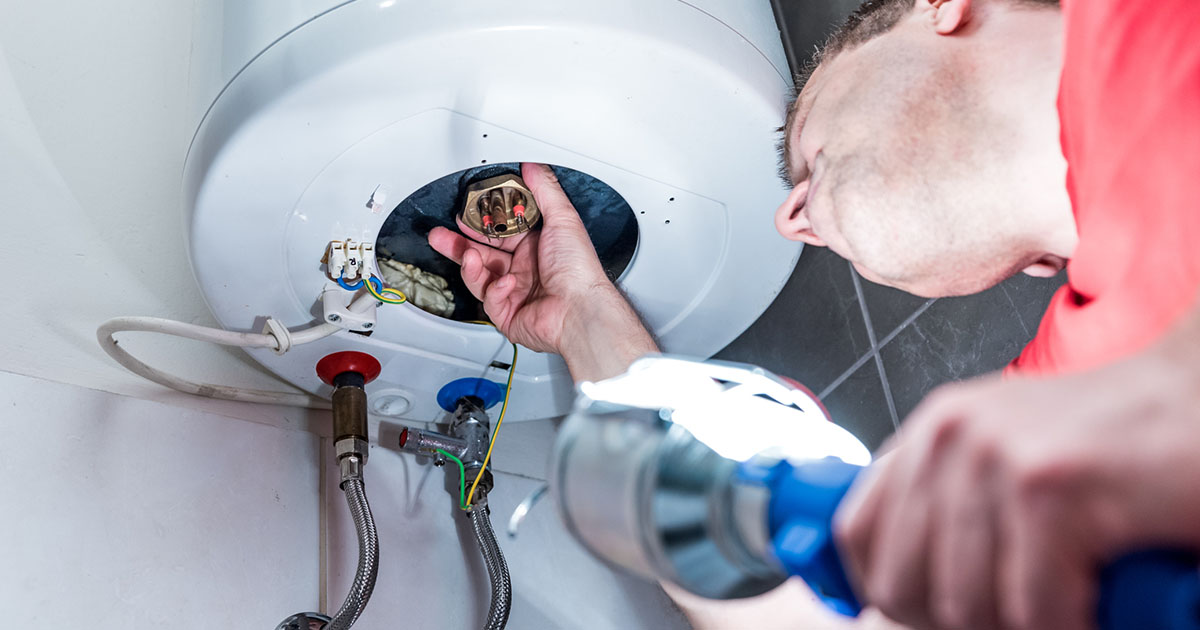Is Your Hot Water Tank Covered by Insurance?

You count on having hot water every day.
You probably don’t think about your hot water tank unless there is something wrong with it, but regular maintenance is essential to keep it working efficiently and safely. What if your hot water tank is 10 years old or more?
Does home insurance cover hot water tanks?
Not only is it a hassle replace a hot water tank unexpectedly and potentially repair water damage, your home insurance may not cover these repairs.
Many home insurance policies do not cover damage caused by a hot water tank that is more than 10 years old.
Check with your insurer to find out the age limits and deductibles for hot water tanks on your home insurance policy.
Why are older hot water tanks not covered by home insurance?
The “insured perils” mentioned in your home insurance policy are accidental and unexpected events. Insured perils include events like wind, lightning, fire, vandalism, falling objects, and theft. These are all things you cannot predict. Your policy will cover water damage caused by your hot water tank if it is caused by an insured peril and will cover the hot water tank itself if an insured peril like if a fire damages it.
But because hot water tanks often fail after 10–12 years, this is seen as an avoidable incident instead of an insured peril. Over time, minerals in the water can corrode metal components of the hot water tank, such as the walls and valves; the tank does have preventative measures like the anode rod, but it requires maintenance to stay in good shape.
Check your home insurance policy and your hot water tank
Find out what your home insurance policy says about coverage for water damage from your hot water tank and whether it needs to be replaced every 10 years.
Find out how old your hot water tanks is. It probably has a certification plate with the manufacture year and possibly the installment date. When you have a new water heater installed, save your receipt and make a note of the date in case your insurer needs it.
How to extend the life of your hot water tank
You can help extend the life of your hot water tank by flushing it out, checking the temperature and pressure relief valve, and arranging professional maintenance. Also, check your home insurance policy to see if it will cover your hot water tank once it is older than 10 years.
Signs your hot water tank needs repairs
Your hot water tank may need to be repaired or replaced if:
- You are not getting enough hot water in the shower or to your appliances.
- Your water pressure is lacking.
- The water looks or smells funny.
- The water heater is making strange sounds.
Hot water tank maintenance you can do yourself
Though you should leave most hot water tank maintenance to a professional, there are a few things you can do yourself.
- Once or twice a year, look for any signs that your hot water tank needs fixing.
- Avoid storing anything on top of or around your hot water tank. If it is heated by natural gas, storing flammable materials near the flame could cause a fire and makes it difficult to do a visual inspection.
- If the floor drain is not the lowest point in the room or your hot water tank is not near a drain, install a drain pan with a pipe leading to the floor drain. Also, install a moisture sensor so you will be alerted if there is a leak.
- If you are comfortable doing this, do a mini flush of your hot water tank every six months to a year. Turn off the power or gas supply to the tank, and then open the drain valve at the bottom to let a few litres of water and sediment flow out. Close the valve and turn the power or gas back on.
- You should also check the temperature and pressure relief valve on your hot water tank once a year. This safety feature prevents the tank from building up too much pressure or overheating. To test the valve, lift the lever and let some water flow out of the discharge tube. The water should flow freely and stop flowing when you let go of the lever. If the valve does not release water or leaks when it is closed, it must be replaced.
- Have a professional do a full flush and maintain your tank. They will examine its valves and rods and make sure the pressure relief valve is working properly. They can also check ventilation around the tanks, sediment, and water quality. They should check gas water heaters for carbon monoxide and make sure they are venting correctly.
- If you will be leaving for an extended period, have a friend check on your home regularly and consider draining your hot water tank and shutting off the main water supply.



